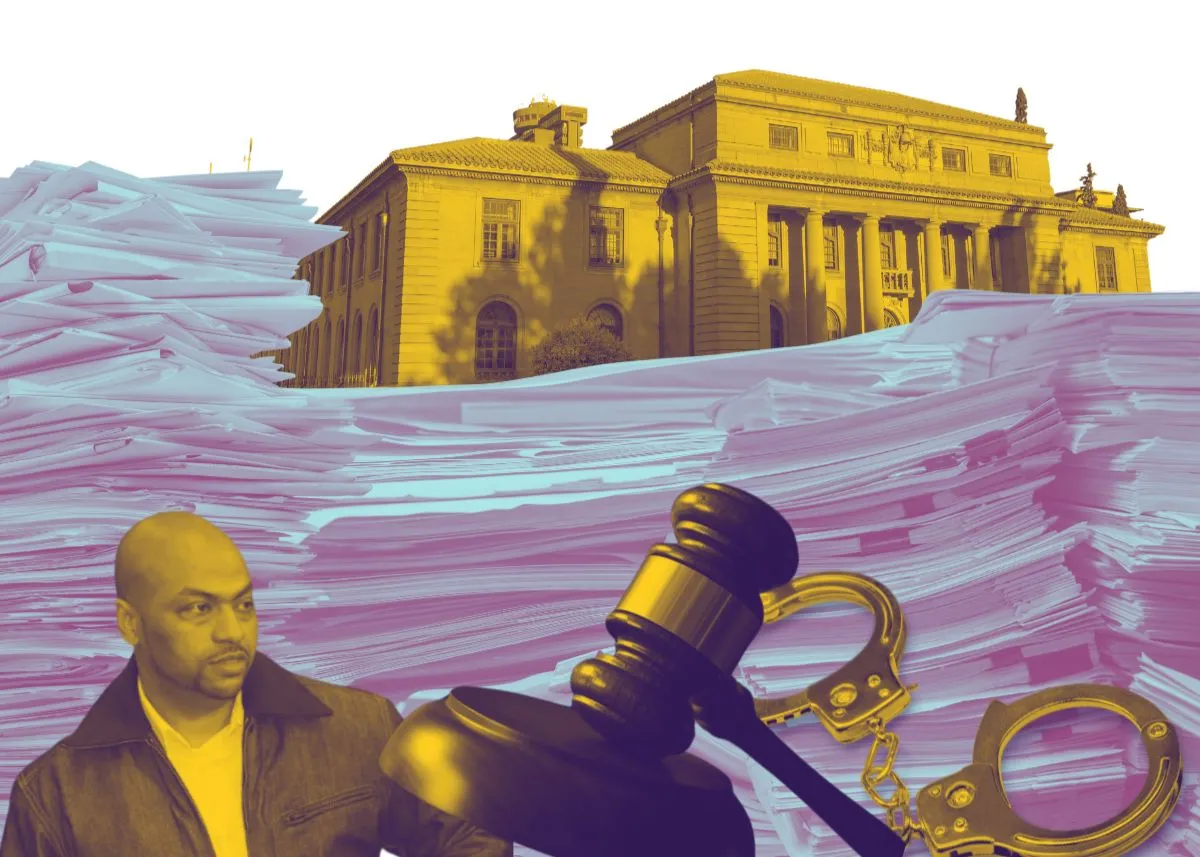
Major issues for South Africa’s judiciary: Bester’s growing troubles
Thabo Bester’s legal efforts expose underlying problems in our judicial system. Why do these cases get so much attention amid significant backlogs?

Recently, Thabo Bester, a convicted murderer and rapist, has been in the news not for his original crimes but for his numerous court appearances. From his demand to wear designer clothes to his urgent application for a laptop to prepare for his deportation case, Bester’s legal bids continue to attract attention.
Each time, the courts seem to entertain these frivolous applications, bringing to light a troubling issue: the state of South Africa’s legal system.
The core of the problem isn’t Bester himself, but the fact that every small legal request from him is entertained in an already overburdened court system. His case juxtaposes an underlying crisis – there are severe backlogs in our courts, particularly in the High Courts, Labour Court, and Road Accident Fund (RAF) related cases.
While ordinary citizens are required to wait years for their matters to be heard, Bester’s requests continue to clog the system, bringing attention to the misalignment in priorities within our judiciary.
A Look at the Numbers
The numbers paint a worrying picture. In the Labour Court, reports show that over 50% of cases enrolled as far back as 2022 remain unresolved, with the court unable to schedule new trials until further notice. The Labour Court, which is classified as a specialised court, is in urgent need of intervention and systemic reform.
Mbekezeli Benjamin, a researcher and advocate at Judges Matter, carefully examined the pressures faced by the Labour Court, their underlying causes, and proposed solutions in his article published in the legal journal De Rebus.
Likewise, Daily Maverick recently reported that RAF cases have become a significant drain on court resources, with trial dates being pushed as far as 2029 in some instances. Gauteng, which handles 45% of the nation’s cases, is facing an unprecedented crisis with far too few judges to handle the increasing caseload.
Senior Counsel and director at Accountability now, Paul Hoffman SC, recently wrote that “Court rolls are dominated by “usual suspect” civil litigants – the Road Accident Fund, Passenger Rail Agency of South Africa, the police and the MEC for health in various claims for damages”.
Despite these alarming backlogs, Bester’s cases continue to get immediate attention. His urgent application for access to a laptop was heard just yesterday, Tuesday 17 September 2024, in the Pretoria High Court. This was only the latest in a series of applications and pleas made by Bester, including his previous request to wear his preferred designer clothes and proclaiming that he refuses to be branded as “the worst inmate in South Africa”.
The Impact of Delays on Justice
The rights of South African citizens are enshrined in the Constitution, including the right to access the courts and have their disputes resolved without unreasonable delay. Yet, with a significant backlog of cases, justice is delayed for many, leaving them in limbo for years.
This delay disproportionately affects those who do not have the resources or means to file multiple legal bids.
It’s a troubling reality that while Bester’s requests and upcoming trial, set for February 2025, are swiftly entertained and drawing nearer, victims of crime, labour injustices, and claimants awaiting compensation from the RAF remain stuck in long queues, with little relief in sight.
The legal system, already strained by limited resources and a shortage of judges, cannot afford to continue to devout its time to less pressing matters when so many critical cases await their day in court.
Thabo Bester: A Reflection of Misplaced Priorities
Bester’s continued access to the courts raises valid questions about the allocation of judicial resources. While every individual, including Bester, is entitled to fair access to justice, it is worth reflecting on why his requests—some of which are unconventional—appeared to be prioritised, while many other cases continue to face delays.
Although his latest legal bid was struck off the roll for lack of urgency, the repeated attention given to his smaller applications may appear disproportionate, given the significant court backlogs and lack of judicial resources.
Moreover, Bester’s actions in court, such as addressing the judge directly rather than through his legal counsel, are disruptive and indicative of contempt, potentially affecting the efficiency of proceedings.
Bester case highlights broken system in need of reform
The real issue here is not actually Thabo Bester; it’s about a legal system that has become overwhelmed, disorganised, and misaligned in its priorities. With fewer judges, overworked courts, and increasing delays, South Africa’s judiciary is in desperate need of reform.
The obvious solution lies in the appointment of more judges and the creation of specialised courts to deal with cases like those involving the RAF, where the bulk of delays occur. Virtual hearings should certainly be encouraged for matters heard on the papers to help reduce the backlog.
Alternatively, the judiciary could implement measures to prevent the abuse of court resources by individuals like Bester, whose endless stream of applications wastes valuable time and energy.
We cannot continue to give airtime to individuals who abuse the system while neglecting the cases that matter most to ordinary South Africans. It’s time for the courts to realign priorities and address the backlogs that threaten the very fabric of justice in our country.
